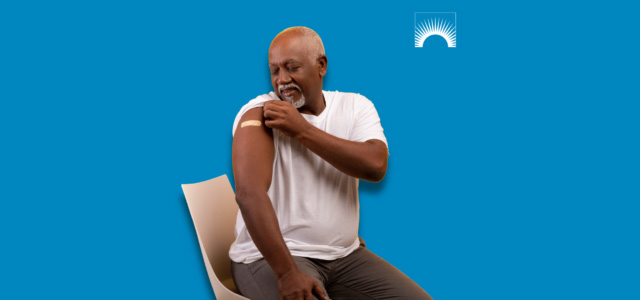
Vaccines for Older Adults
As we get older, it’s important to stay healthy and protect ourselves from getting sick. Did you know there are vaccines that can help older adults stay well? We’re talking about vaccines that can help prevent illnesses like pneumonia, RSV, and shingles-all of which can be serious. Let’s learn a little more about them.
Pneumonia: Pneumonia is a lung infection that can make you very sick. It can cause symptoms such as a cough, fever, chills, chest pain, fatigue, and trouble breathing. There are vaccines that can help protect you from some types of pneumonia. The Center for Disease Control (CDC) recommends the pneumococcal vaccine for adults 50 and older. Talk to your doctor to see which vaccine is right for you.
RSV: RSV stands for Respiratory Syncytial Virus. It’s a common virus that usually causes mild cold-like symptoms. But for older adults, RSV can sometimes lead to serious problems like pneumonia, bronchitis (swelling in the large airways in the lungs), bronchiolitis (swelling in the small airways in the lungs), or worsening of chronic lung conditions (such as COPD and asthma). Good news! There’s a vaccine that helps protect older adults from RSV. The CDC recommends it for adults 60 – 74 who are at increased risk for severe RSV, and for all adults 75 and older.
Shingles: Shingles is a painful rash that can show up if you had chickenpox when you were younger. The same virus that causes chickenpox can hide in your body and come back as shingles later in life. Shingles can be very uncomfortable, causing burning, tingling, or itching, followed by a rash of painful blisters. The CDC recommends two doses of recombinant zoster vaccine (RZV), 2-6 months apart, to prevent shingles in adults 50 and older.
Why are these vaccines important for older adults?
As we age, our immune systems can weaken, making it harder to fight off infections. That’s why it’s important for older adults to stay up-to-date on their vaccines. Vaccines are an effective way to help protect yourself from these illnesses.
What should you do?
Talk to your doctor! They can help you decide which vaccines are right for you based on your health history. Don’t wait – protecting your health is important!
